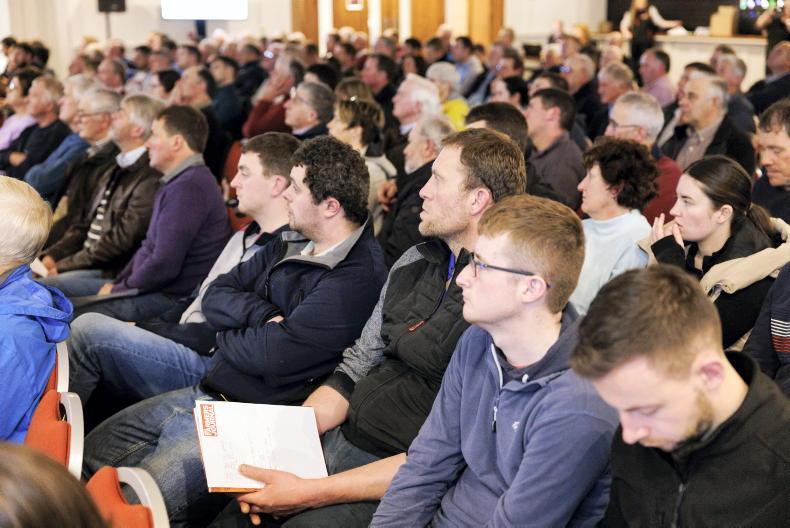Tuesday evening saw the first of four Irish Farmers Journal CAP regional meetings. There was a massive turnout in the Clayton Silver Springs in Cork. That’s hardly a surprise. The new regime will be upon us in little over two months’ time.
The room saw a wider divergence in age profile than most farmer meetings, and questions from the floor covered almost every enterprise. There was a refreshing absence of grandstanding from politicians or farmer representatives. The focus was very much on the practicalities of how the new schemes, which are now formally in place, will operate on the ground.
The scale of change in payment rates and the construction of direct payments has been covered exhaustively in these pages and elsewhere for over a year, but it’s really only hitting home now. It’s like Hallowe’en. People might plan their characters for months, but most people only check the wardrobe for potential costume items a couple of days, or even hours, out.
Lingo
Am I the only one who is liable to put the wrong year on a cheque until well into February? Maybe I’m the only one still even using a chequebook in these days of electronic payments. Well, next January, as well as familiarising ourselves with how 2023 looks at the end of a date, we will have to learn the new CAP glossary.
ACRES is big in the news these days, but does anyone know what BISS, CRISS and CIS-YF stand for? Not many in the room on Tuesday evening did.
Fran Morrin from the Department of Agriculture put the blame for these acronyms squarely on Brussels. This would indicate that despite the UK’s withdrawal from the EU, the English language is still the dominant language within the Commission.
For anyone wondering, those acronyms stand for Basic Income Support for Sustainability (BISS), Complementary Redistributive Income Support for Sustainability (CRISS) and Complementary Income Support for Young Farmers (CIS-YF).
It’s worth pointing out that an IFA meeting in Limerick the same evening also saw a huge turnout of Munster farmers. It related to rural crime, which, much like Brussels rules and regulations, will always be with us. Unlike the European Commission and the Government, criminal gangs give nothing back in return, they only take from farmers.






 This is a subscriber-only article
This is a subscriber-only article











SHARING OPTIONS: